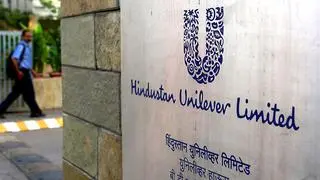On the back of strong demand from a rapidly growing economy, car market leader Maruti Suzuki had had a good 2010.
It now has big plans ahead as it looks to take its installed production capacity, in stages, to 17.5 lakh units a year, enter new market segments and work out a fresh product strategy in partnership with German automaker Volkswagen.
In an interview, the Maruti Suzuki Chairman, Mr R.C. Bhargava, tells Business Line what lies ahead for the domestic auto market and how foreseeable challenges can be overcome to sustain growth.
How do you think the growth of the auto industry will pan out in 5-10 years?
I see the industry growing rapidly at a pace similar to what was seen this year, but the bulk of the growth will be from small cars. The growth of the auto industry anywhere in the world is very much related to the growing economy and the purchasing power of individuals. Cars are aspirational products and those who can't get one go for a two-wheeler, irrespective of how good the public transport system is.
In India, the economic growth has been good in the last several years and the per capita income has gone above $1,000. In the last five years, per capita income has gone up by 7.5 per cent, but prices of cars have only grown about 1.5 per cent a year — so, the affordability has increased. A small car like Alto has become twice as affordable. The Alto in 2005 took 96 months of per capita income to buy, but in 2010 this has come down to 51 months. The number of people above the per capita income has also gone up substantially.
We should be one of the top five auto markets in the next 10 years. Especially if the rural demand grows, I think car sales should continue to grow at more than 20 per cent.
One also has to see how the GST in 2012 affects the excise duties for cars — will the excise differential for small cars continue?... And that's a policy decision.
In which areas do you think reforms are needed that would help the auto sector grow?
Infrastructure is weak and the problem is that the Government's ability to implement infrastructure projects is quite inadequate. We have seen over the last 60 years that most such projects have had both considerable time and cost overruns. Higher private sector involvement through PPP is one way how this can be mitigated. Financial sector reforms also need to be sped up. There should be as free a regime for investment as possible – I don't see any great danger to India's economic or political independence.
The fundamental area of weakness today is the agricultural sector, where reforms are grossly overdue. With so many people in such areas, agrarian reforms need be pushed and treated in the same way as the industry. This cannot be done piecemeal, the whole chain has to be looked in to – from the stage of inputs for production to marketing, reforms have to ensure that the farmer gets most value. Higher agricultural productivity will also help control inflation. With rising incomes, the demand for better quality of food will go up much faster. Rural prosperity will also provide another market for industrial growth.
The third key sector for improvement is education. The availability of well-trained skilled people is already a bottleneck for economic growth. Wages are going up faster than they should – because of the lack of good people. The only way to maintain a competitive edge is to increase the supply of skilled people. Government policy needs to encourage the private sector in education funding, by allowing it to make money as in any other industrial activity.
How do you think Maruti will benefit from the Suzuki-Volkswagen partnership?
That's an area where a lot of details are still not clear. The discussions are on at a global level. What we think may be an advantage may not be what Volkswagen has in mind. Let us say Volkswagen wants to have a large presence in India — that may be detrimental for us. Obviously, we would be interested in new technologies, such as larger diesel engines, hybrids, electric cars and fuel cell technology. Those are important for the future and how to get them is a question. If Volkswagen can give, then that is only better, but who knows…
With petrol prices rising, what kind of other technologies do you think can provide sustainable transportation systems in India?
Best fuel, from the environment point of view which can have a quick expansion of network and lower emission levels, is Compressed Natural Gas. The policy on making CNG available for the transportation sector is not very clear yet. There is a lot of CNG available and demand is far lower in comparison. On other technologies, I think electric vehicles are a no go for a long time. Hybrids, however, have a potential provided the cost comes down.
Investment in R&D is seen to be lagging in India, though companies are growing rapidly. What is your take on this?
R&D does not give returns in the short-term and it is a fairly large sized investment. Small companies will find it hard to invest in R&D, because the money has to largely come out from their own retained income. It's too risky to do R&D from borrowed funds, because it is tough to guarantee a payback. Some companies such as those in pharmaceutical sector do invest, but compared to their international counterparts most companies in India are very small.
However, going forward we will have to develop our own products to be able to compete as getting products from elsewhere will get more harder. Today, foreign companies are not willing to share their expertise, unless they have control over the project. Maruti has now started developing its own capabilities on par with the Suzuki R&D in Japan, only after Suzuki acquired a controlling stake in the company. This is the first Suzuki R&D centre outside Japan.
How important is Maruti Suzuki to Suzuki Motor Corp's global operations? How will you look to leverage your local R&D capabilities?
The Indian business is extremely important for Suzuki. Today, Maruti produces and sells more cars in India than Suzuki sells in Japan. It is still not bigger than the total production – because they export high volumes. This year, Maruti will make 1.25 million vehicles. In terms of volumes, Maruti Suzuki represents around 30 per cent of global sales of Suzuki, but in terms of profits, it is higher at 50-60 per cent. In 2009, Suzuki was one of the few Japanese auto companies to show profits and this was largely because of the Indian operations.
We set up the R&D because India needs to develop products more specifically suited for the Indian market. Japan does not have the capacity or the resources to pay exclusive attention to products for India. Plus, it's costlier to do it there and there is a shortage of manpower.
Few European OEMs are believed to be lobbying for lower import duties on CBUs, especially in the India-EU FTA. What is your view on this?
There are different aspects to this. As far as small cars are concerned, we're not bothered because we're far more competitive and everyone is now setting up base here. The issue is for bigger cars where the volumes are small and it doesn't matter to us because small cars are our bread and butter. I think although there will be growth in sedans, the volumes won't be very large even 10 years from now. We will remain a small car market.
The question is also that how much would one want to encourage big cars in India as a policy matter, especially from the environment point of view. We are trying to set norms for greenhouse gases and Government is soon going to issue fuel efficiency labelling norms.
The excise duty differential highlights the fact that the Government wants to push small cars. Even if import duties are removed, it will still be cheaper to import from Europe because of the high volumes manufactured there. In fact, big cars made in India are more expensive than the same model sold in Europe, because of the low volume of components made here.







Comments
Comments have to be in English, and in full sentences. They cannot be abusive or personal. Please abide by our community guidelines for posting your comments.
We have migrated to a new commenting platform. If you are already a registered user of TheHindu Businessline and logged in, you may continue to engage with our articles. If you do not have an account please register and login to post comments. Users can access their older comments by logging into their accounts on Vuukle.